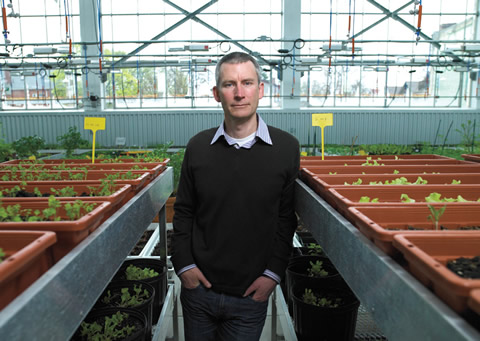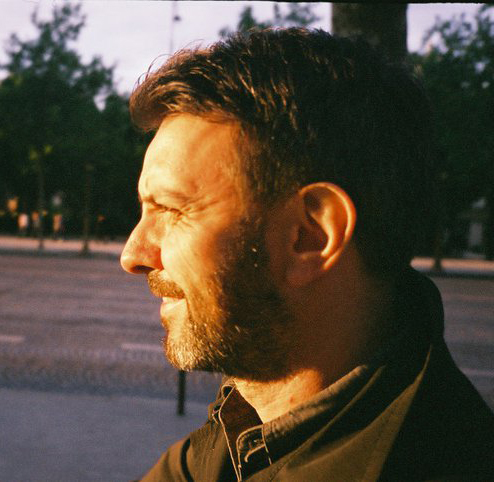The best parties always end up in the kitchen,” Nick Saul says as we walk through a warm, luminous greenhouse at the Artscape Wychwood Barns in Toronto. Saul (BA 1990 VIC) is the executive director of The Stop Community Food Centre, a thriving anti-poverty organization that increases community access to healthy food. The greenhouse, with its trays and buckets bursting with buds, is part of The Stop’s nine-years-in-the-making expansion. It provides fresh, organic produce for the organization’s various food programs. Adjoining this 3,000-square-foot facility is a gleaming kitchen, a classroom-cum-dining area and, out-side, a sheltered garden and a bake oven where families can make their own pizza. It’s a small foodie utopia – and a food activist’s dream.
Saul was born in Tanzania to academic parents – his father is renowned African liberation activist, author and retired professor John S. Saul (not to be confused with John Ralston Saul) – and was a self-described “red diaper baby.” Nick studied history at U of T (where he was also captain of the Varsity basketball team) before working in Bob Rae’s office in the early ’90s. The gregarious, silver-haired 42-year-old – he bears a passing resemblance to CNN’s Anderson Cooper – was also a community organizer in Alexandra Park, the first public housing project in Canada to convert to a co-operative. He joined The Stop 11 years ago, not out of a particular interest in food but out of an attraction to the group’s social justice goals.
The non-profit Stop, established in the mid-’70s, was one of the first food banks in Canada. It has now evolved into what Saul calls “a nourishing place where people can come not only for food but for hope and to build skills and self-esteem.” In Saul’s view, traditional food banks are merely a stop-gap solution; with food bank demand in Canada doubling in the last 20 years, the organization has adopted an innovative teach-a-person-to-fish model. The Stop still maintains a small food bank, but community members (largely low-income residents and new immigrants) can also grow their own vegetables in community gardens, buy food in fresh markets, and take cooking and nutrition classes. In 2008, the centre assisted 16,000 people. While labouring in the gardens or kitchen is not a prerequisite for participating in meal programs, the centre’s holistic approach fosters an atmosphere of civic engagement. Anyone can become a member.
Under Saul’s leadership, The Stop has evolved into an internationally recognized pioneer in the fight to eradicate hunger. And it’s still growing: with the greenhouse now fully operational, the organization has turned its attention to the development of an urban farm in the city’s north end. Saul’s own ambition might be growing as well. Last year he won the Jane Jacobs Prize, awarded to community leaders in Toronto, and, when asked if he’s interested in a future political career, he grins. “I love politics,” he says, without completely ruling out the possibility. “But there are so many things you can do outside of politics that change the way we live and think.”
Click play below to watch a video tour of The Stop’s Green Barn as it underwent development.
The Green Barn is now open with public hours. For more information visit: thestop.org/green-barn






